Trump travel ban: Pre-clearance and why it matters
- Published
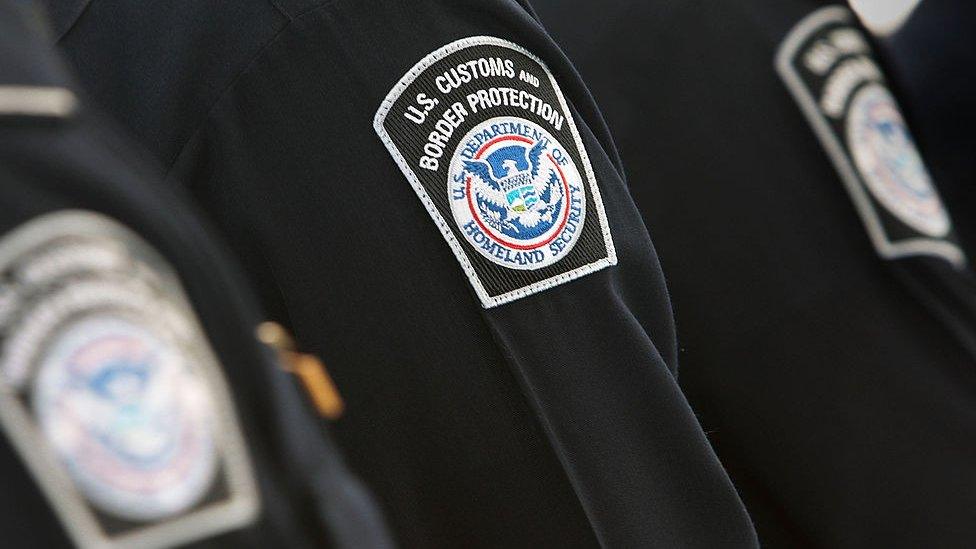
The US Department of Homeland Security operates pre-clearance through its Customs and Border Protection
US President Donald Trump's controversial travel ban has had far-reaching consequences, and not just for the black-listed countries.
It has raised issues for the six countries, including the Republic of Ireland, which offer US immigration screenings, known as pre-clearance, at their airports. The others are the United Arab Emirates, Bermuda, Canada, Aruba and the Bahamas.
The Irish government has ordered a "complete review" of the system in the wake of President Trump's new rules, which temporarily restrict the movement of people from seven mostly Muslim countries - Iran, Iraq, Libya, Somalia, Sudan, Syria and Yemen - to the US.
Some Irish politicians and human rights organisations are concerned the implementation of the ban on Irish soil could amount to discrimination.
'Save two hours'
More than 600 US law enforcement officers are stationed at 15 locations around the world checking travel documents, passports, visas and making sure travellers abide by strict customs and agriculture importation rules.
In total 18m people went through the pre-clearance system around the world last year - 15% of all commercial air travellers flying into the US.
Ireland is the only European country with pre-clearance facilities.
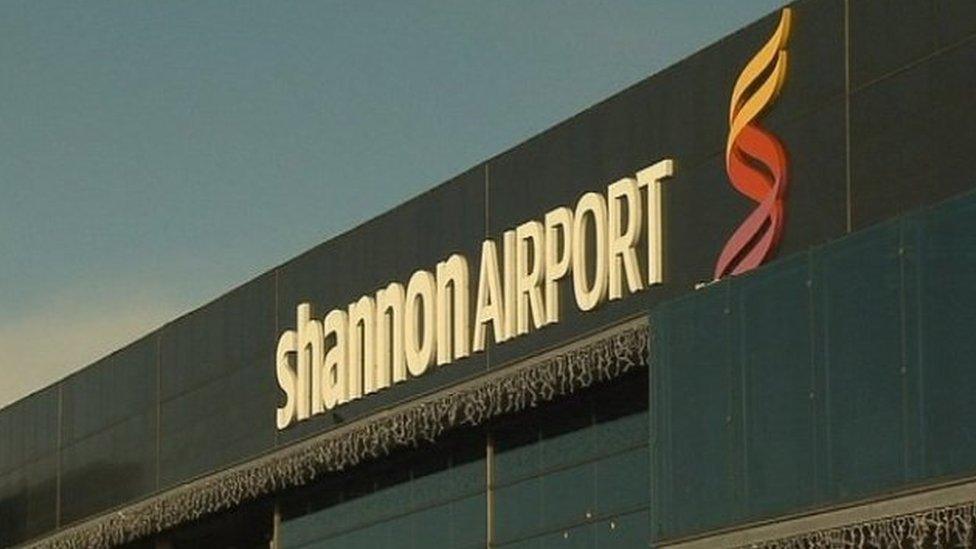
Its pre-clearance operations take place in Dublin and Shannon airports - a deal between the US and Ireland dates back to 1986, with the County Clare airport offering only immigration checks initially.
Last year, border officials processed about 1.18m people in Dublin and 204,000 people in Shannon.
These outposts are a little bit of America in Ireland - the staff are all American, there are stars and stripes everywhere and even the vending machines are distinctly American.
After filling in security and customs forms, scanning passports and fingerprints, passengers can gleefully skip past the long immigration queues upon arrival, pick up their bags and go.
They are effectively treated as domestic arrivals and Dublin Airport says the whole process can save passengers at least two hours.
'Burning bridges'
Dublin-based travel writer Mark Evans can remember the days when you needed to prove you had money in the bank and a job to come back to when flying to the US.
"Now there's no grilling, no stopping, you just take your cab to Manhattan," he said.
He said pre-clearance was all about ease of access for travellers and businesses, both north and south of the border, and other airports in Europe would love to have it.
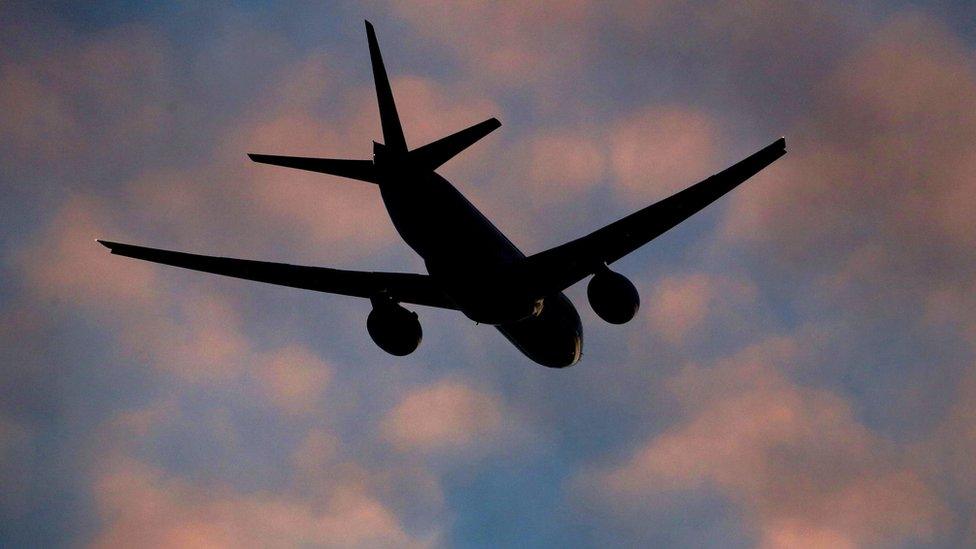
The chief executive of the Dublin Airport Authority says 'US pre-clearance is critically important'
"Dublin Airport was the fifth largest airport in Europe for North American connectivity last year after Heathrow, Paris, Frankfurt and Amsterdam," he said. "Stockholm is likely to get a pre-clearance facility and Manchester is pushing very hard for one.
"The Trump ban is nuts but it's not going to last. Removing pre-clearance would be burning our bridges. Let the politicians do the politics and travellers do the travelling."
On Tuesday, Kevin Toland, chief executive of the Dublin Airport Authority, said the pre-clearance facility was a "critical point of competitive advantage for Ireland and Dublin Airport".
"US pre-clearance is critically important for this country, critically important for the government, critically important for our airport, and critically important for the US," he said.
On its website, the Department of Homeland Security, which operates pre-clearance through its Customs and Border Protection, says operating the system in "strategic locations" enhances security, external, improves passenger experience and increases economic opportunities for airports and airlines.
'Fellow human beings'
On Monday, a man was refused pre-clearance into the US from Dublin Airport. The Irish government has said he was lawfully working and resident in Ireland and was entitled to leave Dublin Airport.
No information has been released on what passport the passenger was travelling on.
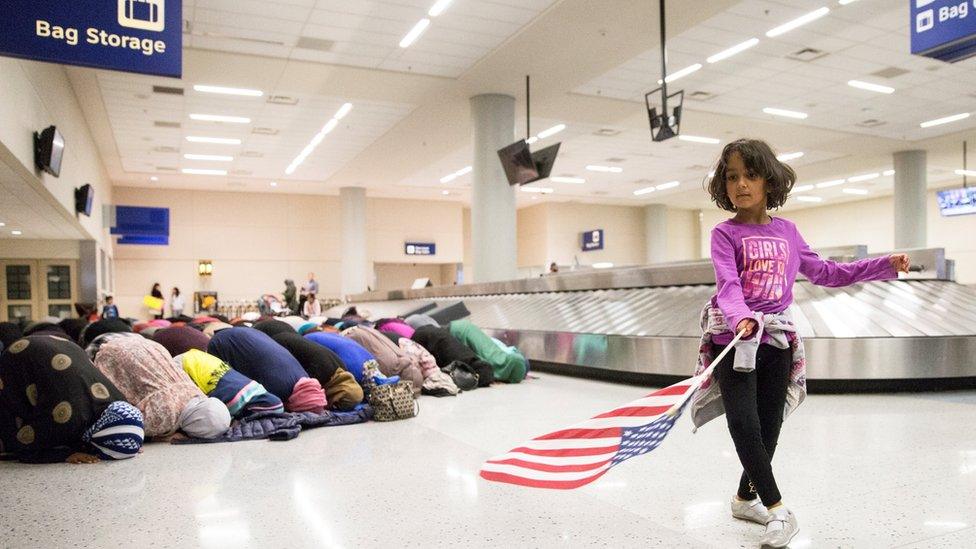
Protests at President Trump's travel ban have taken place all over the world
The US embassy in Dublin said that decisions on pre-clearance were a matter for the Department of Homeland Security.
While Taoiseach Enda Kenny "disagrees" with President Trump's ban, he said the Irish cabinet was very much in favour of retaining US pre-clearance facilities.
Ireland's Children's Minister Katherine Zappone has suggested applying the ban on Irish soil "may be unlawful" and said Ireland had a moral obligation to "stand with our fellow human beings against discrimination of this kind".
Before the clampdown was made, US authorities had been in talks with several other countries interested in establishing pre-clearance operations.
Agreements had been reached late last year for new facilities in Stockholm in Sweden and Punta Cana in the Dominican Republic.
On Tuesday, the Dutch government said it had ended pre-clearance talks with the US.
- Published10 February 2017
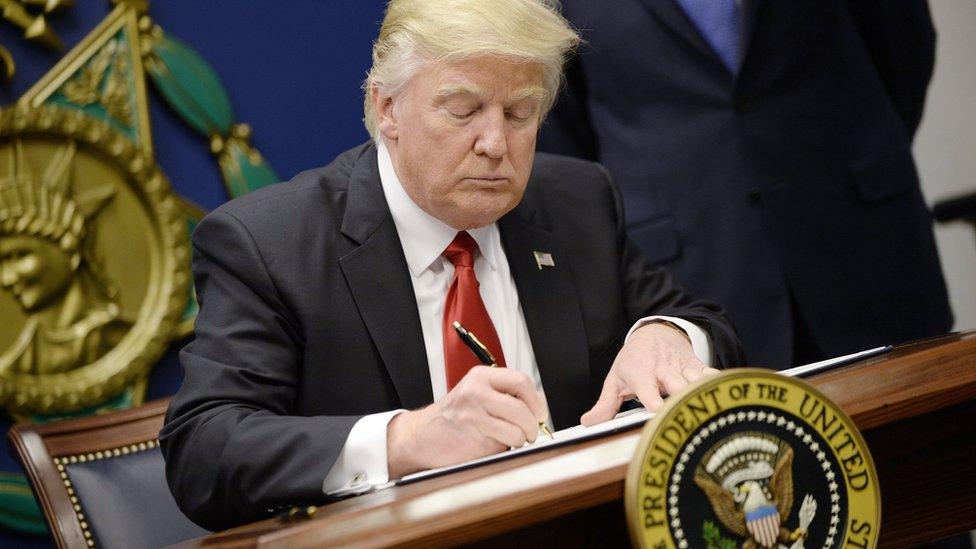
- Published30 January 2017
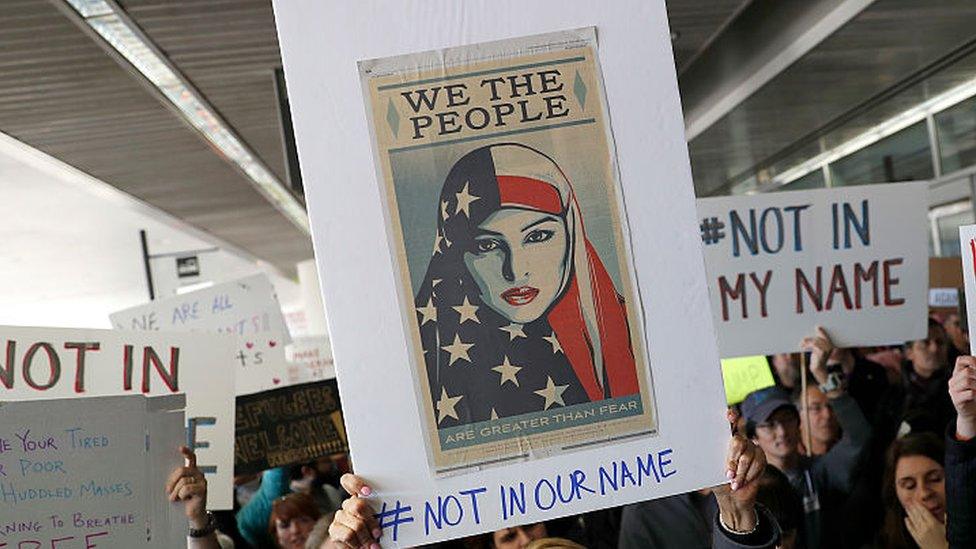
- Published31 January 2017
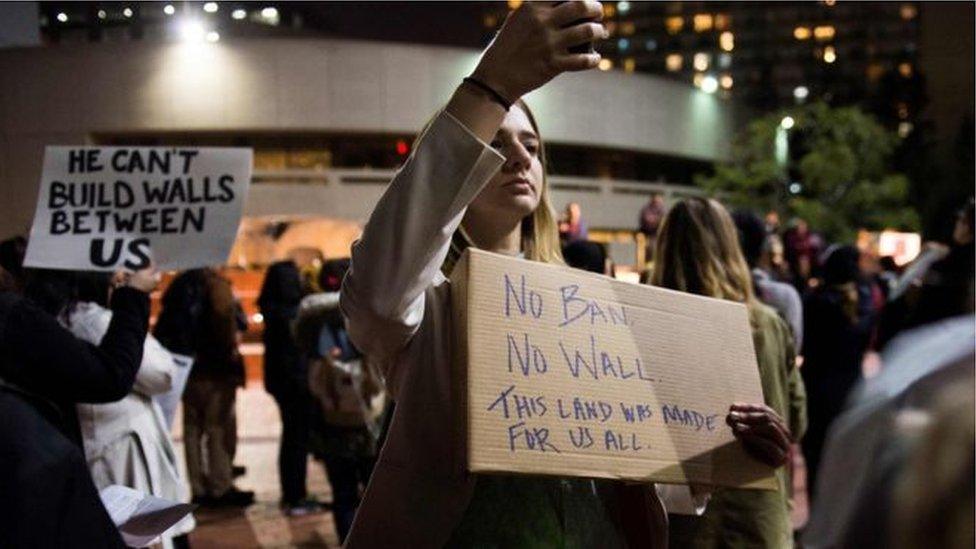
- Published6 February 2017